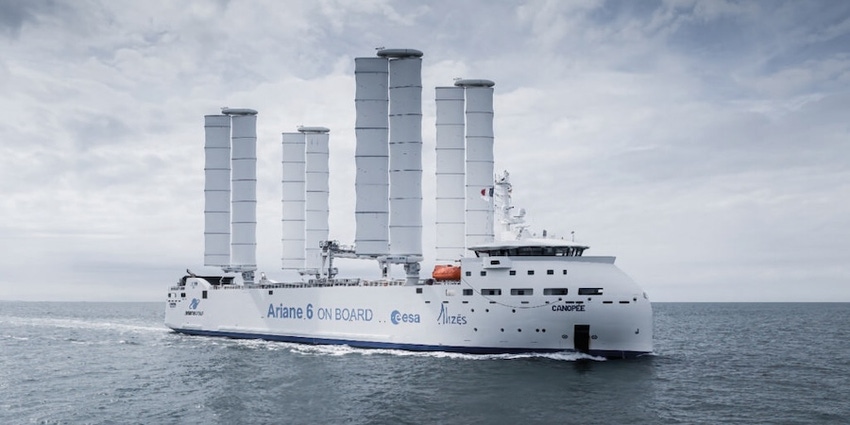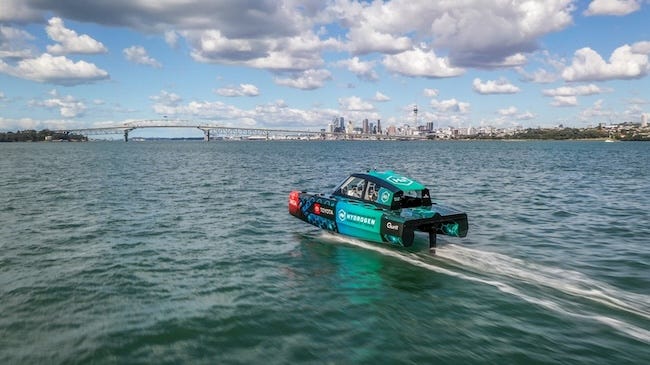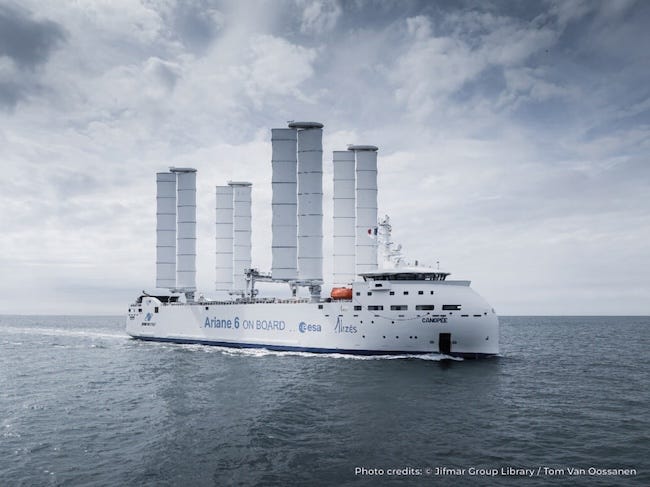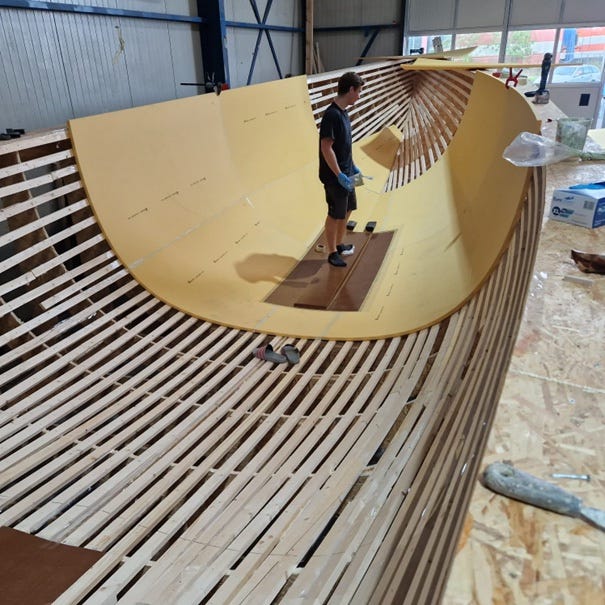JEC Composites Innovation Awards: Finalists in Maritime Transportation & Shipbuilding Category
The maritime category of the awards program features entries from Gurit, Ayro, and Paul Dijkstra Composites.
February 1, 2024

At a Glance
- Hydrogen chase boat rides on advanced composites
- Composite wingsail system safe for 100-knot winds
- Thermoformed structural foam core key to yacht fabrication
The 2024 edition of the JEC Composites Innovation Awards has kicked off with the naming of three finalists per category. The awards ceremony will take place in Paris on Feb. 8, 2024.
Here we profile the successful entries in the Maritime Transportation & Shipbuilding category. Finalists in several other categories are featured on the PlasticsToday Automotive & Mobility page.
Hydrogen chase boat for America’s Cup Team
Company: Gurit (Switzerland)
Partners: McConaghy Boats (China), Team New Zealand Ltd (trading as Emirates Team New Zealand) (New Zealand)

Image courtesy of Gurit
Description: Americas Cup holder Emirates Team New Zealand (ETNZ) is the driving force behind introducing zero-emission vessels for on-water support of the America’s Cup, and is responsible for the detail design, naval architecture, foils, systems integration, and software development.
Gurit’s material engineers worked alongside that team to develop an innovative lightweight composite structure to ensure the greatest flexibility in design and installation of the hydrogen fuel cell and supporting systems.
With the prototype vessel successfully demonstrated, McConaghy Boats then produced the production version while making the technology available to the race committee and other teams.
Key benefits
Reliable lightweight composite structures during a rapid prototype process
Structure with large openings and minimum weight allows for future access
Reduced structural weight helps offset hydrogen electrical component weight
Demonstrates the possibilities for wider adoption of zero-emission technology
OceanWings
Company: Ayro (France)
Partners: Alizés (France), Jifmar Offshore Services (France), Zéphyr et Borée (France), Neptune Marine (Netherlands), VPLP Design (France), ArianeGroup (France)

Image courtesy of Jifmar Group Library/Tom Van Oossanen
Description: OceanWings is a patented, automated, self-raising and lowering vertical wingsail system that enables newly built or existing ships to reduce fuel consumption and the resulting carbon footprint by up to 50%.
The challenges include the wing’s ability to withstand winds of up to 100 knots, while ensuring the proper functioning of its operations. Structure is essential to meet these challenges.
Ayro largely selected composite materials for the construction of its wingsails because of their high mechanical strength and light weight.
Key benefits
Up to 50% fuel savings
Automated and passive system
Dimensioned for harsh sea environmental conditions
Reefable and furlable system
Adapted to new and retrofitted ships
Tool-less composite builds by 3D core kit
Company: Paul Dijkstra Composites (Netherlands)
Partners: Curve Works (Netherlands)

Image courtesy of Paul Dijkstra Composites
Description: A groundbreaking yacht was built using innovative 3D core kits, eliminating traditional mold and tooling waste.
A wooden jig is used to assemble and bond the thermoformed foam core, serving as the foundation for laminating the inner and outer carbon structure. Curve Works’ 3D Core Kits comprise a thermoformed structural foam core, formed on adaptive molds. Paul Dijkstra Composites ingeniously utilized the 3D Core Kit as both mold and substructure for a new 46-foot yacht.
A simple wooden frame acted as an assembly jig for the kit, which was bonded together to form a vacuum-tight surface and overlaminated with carbon skins. This approach bypasses the plug-mold process, resulting in shorter build times and minimal waste. The first hull also served as the production-ready mold.
Key benefits
No plug/mold required, resulting in a cost-efficient build process
Faster build time
90% waste reduction from tooling
Less factory space required — no need to store a mold
About the Author(s)
You May Also Like




